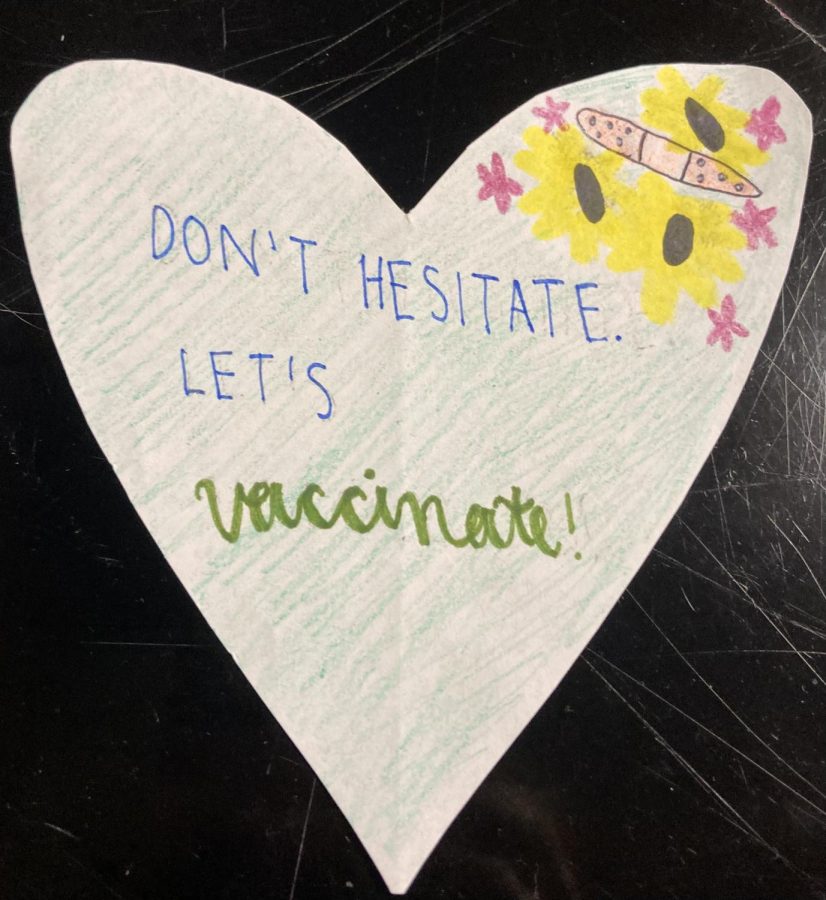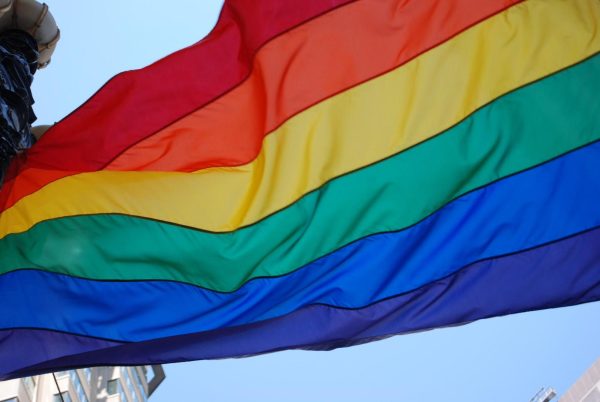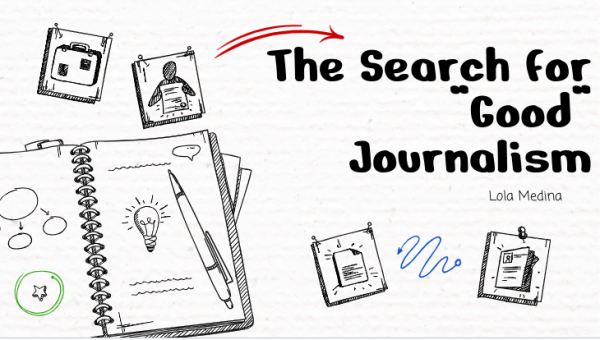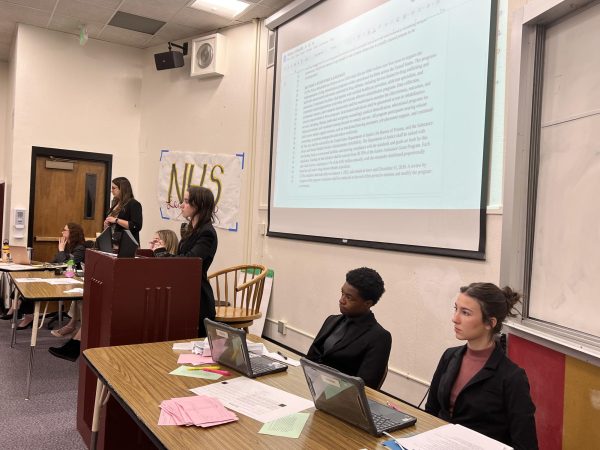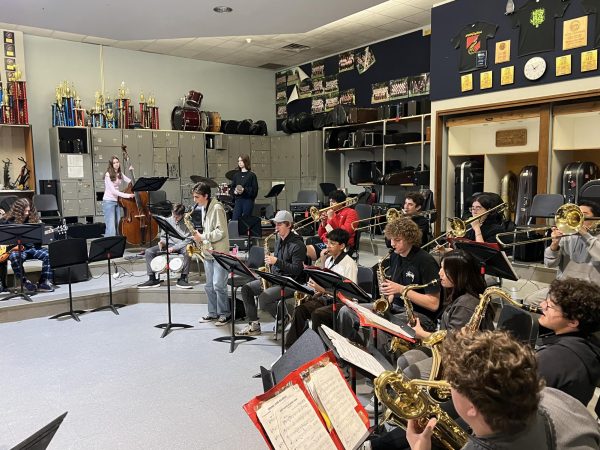SENTINEL EDITORIAL: Vaccine is vital for return to normal
“It is just as important now as ever to stay safe and self-protect from COVID-19. The best way to do so is by getting vaccinated. And boosted.” – Sentinel Staff
“It is incredibly important to receive the booster for continued protection against severe sickness. It’s like charging a cellphone.”
The COVID-19 Pandemic has been in everyone’s lives for two years now. Over this time, new strains, namely the Delta and Omicron variants, have emerged. Slowly, however, the country has been resuming pre-pandemic regulations — including optional masking and lifting vaccine mandates. Although these mandates are fading, one thing is certain: COVID-19 is not.
It is just as important now as ever to stay safe and self-protect from COVID-19. The best way to do so is by getting vaccinated. And boosted. Finding an appointment is a computer search away, with different businesses and sites offering doses of Moderna, Pfizer, and Johnson & Johnson.
However, getting vaccinated is not as simple as it should be. The topic itself has become political, turning away from medical guidance and evidence on its safety and effectiveness.
The Washington Post released statistics by the Kaiser Family Foundation, stating that “for every unvaccinated Democrat or Democratic-leaning independent, there are about three unvaccinated Republicans or or Republican-leaning independents.” While The Sentinel does not wish to further insinuate that vaccination is a political issue, studies and facts speak to this issue.
Furthermore, many states have recently banned vaccine mandates. Ballotpedia states, “in total, 20 out of the 27 states with Republican governors have prohibited proof-of-vaccination requirements through executive orders or legislation.” Meanwhile, the remaining 23 states with Democratic governors vary. “Six states have facilitated the creation of digital vaccination status…” while “seventeen states… have neither prohibited nor facilitated proof-of-vaccination requirements…” Ballotpedia explains.
The Sentinel staff implores students to get vaccinated due to its benefits in helping the human body resist the virus. By doing so, it prevents the spread, encouraging the pandemic to end faster and the world to recuperate from global pandemonium.
Recently, our staff released a poll at Northgate asking students to state their vaccination status, including if they have received the booster shot. Out of the 152 people who responded, 94.1% of this population shared that they received two shots against COVID-19. The results for the booster shot were more broken down. Of the 94.1% of vaccinated responders, 69.7% reported that they had received the booster, while 25.7% had not.
For those hesitant about getting the COVID vaccine, the Sentinel staff feel strongly that benefits outweigh people’s concerns. Unvaccinated people are more than five times more likely to contract the virus than vaccinated people, as a study from the U.S. Centers for Disease Control and Prevention (CDC) has shown. The numbers vary slightly across the different types of vaccines, but overall the chances of recovering from the virus for vaccinated people are much higher, no matter the developer. The Moderna vaccine is 94% effective at preventing COVID-19 altogether, with Pfizer closely following at 91%, based on CDC findings. All of these vaccines have been tested in numerous studies for safety.
Vaccine skeptics have cited the lack of proper testing for vaccines as a reason not to trust them. One source of fear is that 54 people who had received the Johnson & Johnson vaccine contracted a rare blood clotting disorder. However, these cases came from a pool of over 17 million people who received the Johnson & Johnson shots, making the chances of getting this disorder miniscule compared to the proven danger of COVID-19. On a global scale, it is much safer to take the chance with vaccines than risking it all with exposure to COVID.
According to statistics published by The New York Times, both numbers of COVID cases and death rates dropped to their lowest point in May-June 2021, when vaccination was made widely available and before the emergence of the Delta variant. With the danger of new variants still present, vaccination can reduce the chances of serious symptoms.
Another layer of the debate is whether or not to receive the third shot, also known as the booster shot. According to a study collected by WebMD, the Booster shots of both Pfizer and Moderna were 90% effective at avoiding the hospital due to infection from the Omicron variant. In addition, they are 82% effective at preventing emergency room and urgent care visits.
It is incredibly important to receive the booster for continued protection against severe sickness. It’s like charging a cellphone. Over time, the effectiveness of the device diminishes. After it’s dead, it’s just a piece of metal and the user is unable to access all of its abilities to protect themselves; dialing 911, calling poison control or the suicide hotline, searching if that plant is poisonous. But after the phone is charged, its use is restored. Similarly, even the most effective vaccines lose their effectiveness over time. The booster gives the original doses a boost to ensure their usefulness.
Currently, both Pfizer and Moderna are requesting approval from the FDA for a fourth round of their vaccines. Many people are left wondering where this will lead us in the future: will COVID-19 vaccinations be annual, semiannual, or even more often than that? Regular booster shots seem to be the best way to combat the coronavirus variants. Studies by the CDC have proven that the immunity to the virus provided by the original vaccines is starting to diminish. As a result of this, the CDC heavily recommends a fourth dose, especially to anyone with a weakened immune system.
Sentinel staff members contributing to this editorial, which represents the views of the staff, include: Editor-in-Chief Adelaide Berrett, Managing Editor Vincent Tanforan, staff writers Gabriella Toranski, and Abby Fox.

